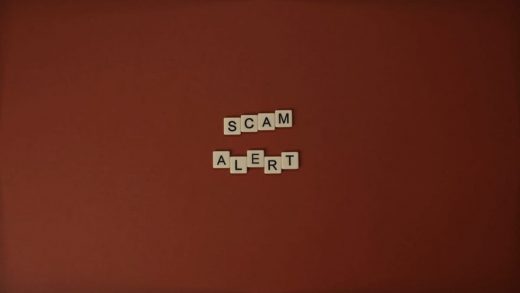:format(webp)/https://www.thestar.com/content/dam/thestar/entertainment/television/2022/12/25/when-cavett-met-groucho-pbs-special-celebrates-friendship-between-the-thinking-mans-talk-show-host-and-the-marx-brother/groucho_marx_and_dick_cavett_in_june_1968.jpg)
The PBS series “American Masters” delivers two masters of wit Tuesday night with “Groucho & Cavett.”
Hosted by late-night legend Dick Cavett, the two-hour salute features many clips of a grandfatherly Groucho Marx as he sings and wisecracks his way through a career-ending curtain call. This occurred over several memorable episodes of “The Dick Cavett Show,” which spanned decades but shone brightest in its 1969 to 1975 ABC incarnation.
Once you looked past the kooky hat Marx wore on Cavett, Groucho fans were thrilled he could still sing and zing as he approached his 80s.
Today, still glib and gracious at 86, Cavett says he never dared dream he would have a lasting friendship with such a comedy legend. When they first met in 1961, at a funeral gathering for playwright George S. Kaufman, Cavett was 25 and Marx was 70.
“Yet we seemed like we were the same age,” said Cavett, who still remembers their first exchange.
“I’m a big fan of yours,” he told his comedy idol. To which Marx replied, “Well, if it gets any hotter, I can use a big fan.”
Eight years later, Groucho made his first appearance on Cavett’s series.
While one career was on the way up and the other winding down, both Marx and Cavett left their Marx on entertainment. Through the decades, they have been parodied on everything from “SCTV” to “The Simpsons.” On the surface, however, it might seem as though they had nothing in common.
Marx, born Julius Marx, never finished elementary school. Cavett was a graduate of Yale.
Marx was part of a large, rambunctious New York family, including gifted brothers Chico, Harpo and sometimes Zeppo (real names: Leonard, Adolph and Herbert). The Marx Brothers became enormous stars in vaudeville and then on Broadway, and finally in over a dozen feature films such as “Duck Soup” (1933) and “A Night at the Opera” (1935).
Cavett was an only child, the son of schoolteachers from Nebraska.
The Marx brothers were Jewish. Mel Brooks once called Dick Cavett “spectacularly gentile.”
Marx became one of the biggest stars of television’s first decade as the wisecracking host of the quiz show “You Bet Your Life.”
Cavett didn’t start out telling jokes; he wrote them, for early “Tonight Show” hosts Jack Paar and Johnny Carson.
By 1969, he was competing with Carson for late-night viewers. Cavett was a hit with critics, heralded as “the thinking man’s talk show host.” His series set the bar for conversation and inquiry seldom seem on talk shows today. (Pressed in this interview to name a current late-night favourite, Cavett singled out CBS’s “Late Show” host Stephen Colbert.)
His guest list back then was impressive: Marlon Brando, Muhammad Ali, Woody Allen, Katharine Hepburn, John Lennon and Yoko Ono, George Harrison, Orson Welles, Judy Garland, Bette Davis, Truman Capote and too many other names to drop.
“I came along at a time when there were many great people to get,” said Cavett. “I also came along at a time when assassinations began in America. So I had that contrast to work with.”
In some ways, Marx brought the whole bag of tricks to Cavett’s New York studio. He could still work an audience with the act he honed 50 years earlier with his brothers. Yet he had a stinging wit that could crack up and even shock Cavett. At a time when homosexuality was considered a crime in several states, Marx playfully proposed once on air to author (and good sport) Capote.
Marx could be blunter than Dave Chappelle, as he often was on Cavett’s show. Asked if his reputation as a truth teller was what keeps him relevant, Cavett cites Marx’s response to the notorious House Un-American Activities Committee. “These are my principles,” he once stated. “If you don’t like them, I have others.”
In the special, there is a clip of Marx venting about U.S. presidents Lyndon Johnson and Richard Nixon, denouncing their records on the Vietnam War. The studio audience, likely more college-aged than most, cheers.
Cavett was a kindred spirit and remains proud of his own ranking on Nixon’s enemies list — even, as he later discovered, if it cost several of his staffers a tax audit.
Today, the talk show host thinks he had the best of the last of Marx. The still loping comedian explored the limits of censorship as well as ABC’s camera range. Cavett lived out the fantasy of becoming a sixth Marx brother, harmonizing with Marx toward the end of the PBS tribute on “Tit Willow” from “The Mikado.”
There are also some surprisingly touching moments. At times, Marx seems to be tutoring Cavett, right down to when and how to take a bow.
That Marx stayed in the spotlight beyond his “Hello, I Must be Going” cue was evident in the later shows. When Erin Fleming from northern Ontario, a half-century Marx’s junior, introduced herself to Cavett as Marx’s secretary (to loud skepticism from the studio audience), Marx quipped on cue, “That’s the euphemism of the year.”
Some viewers may have winced, but those of us who were grateful to Cavett for a little more “Monkey Business” could never get too much Marx.
JOIN THE CONVERSATION



